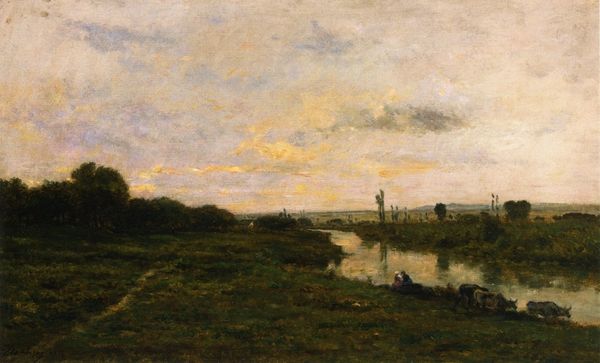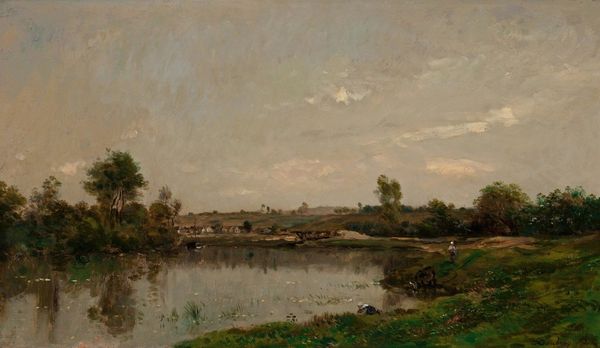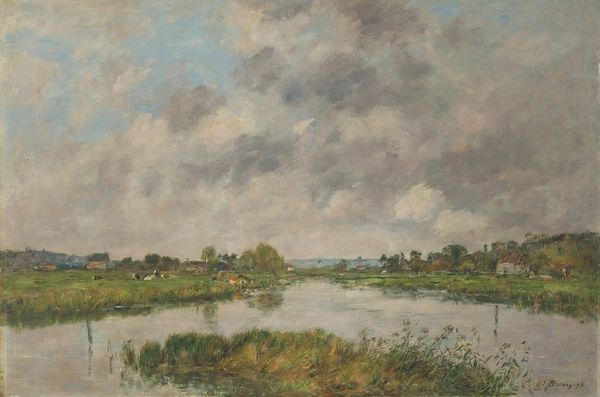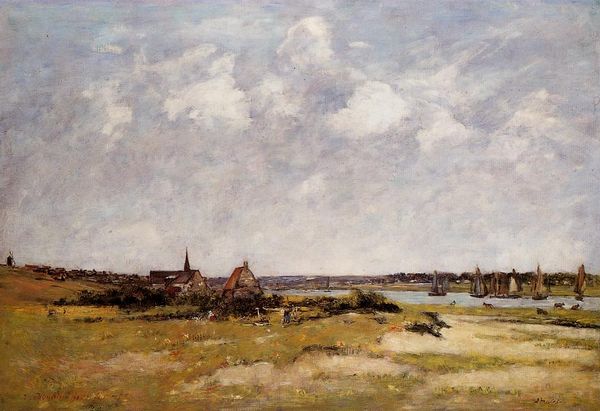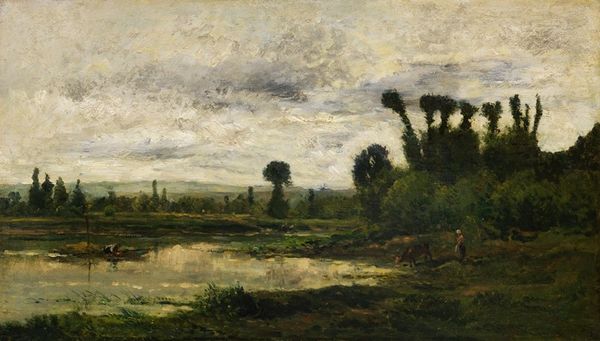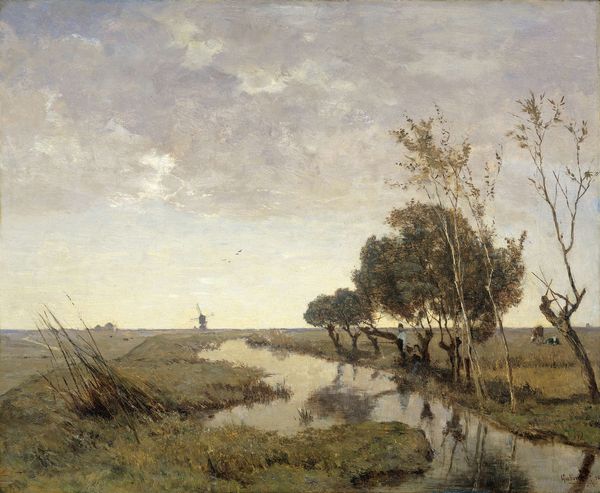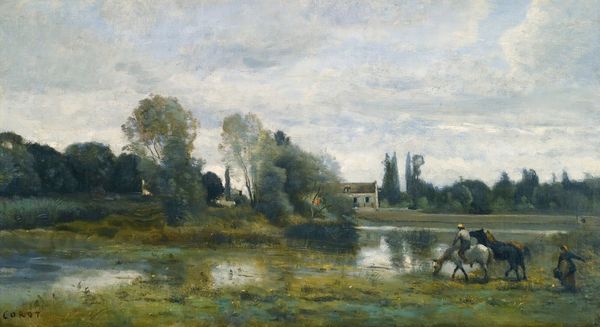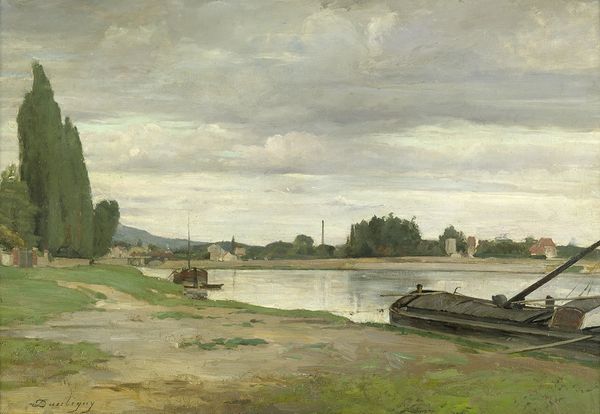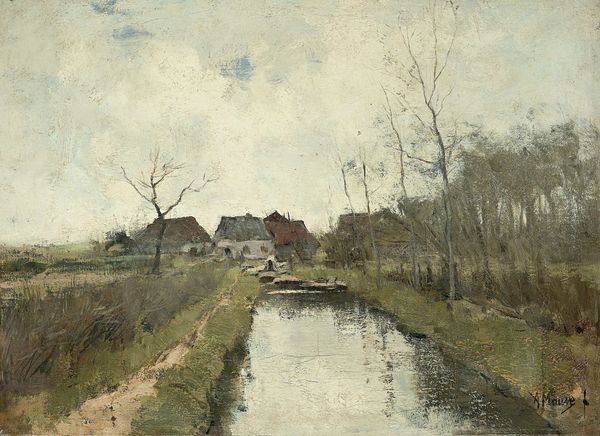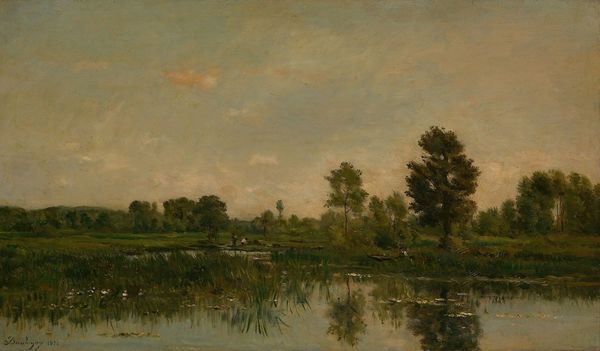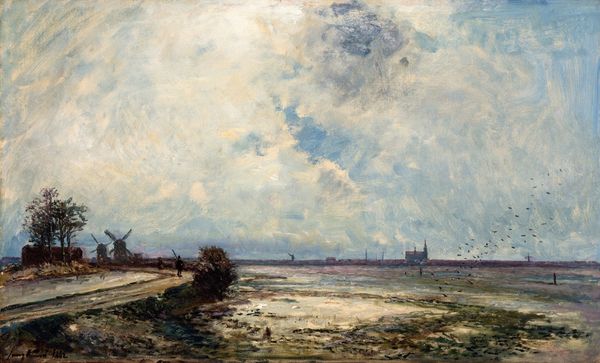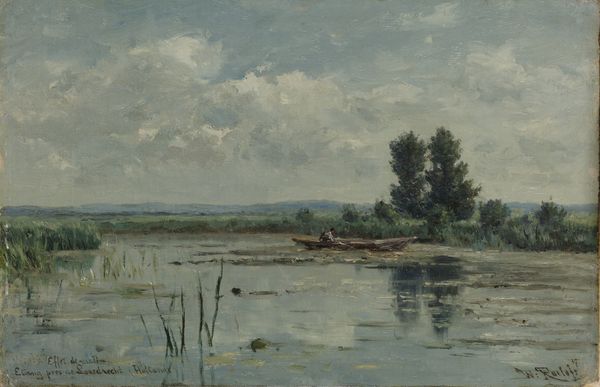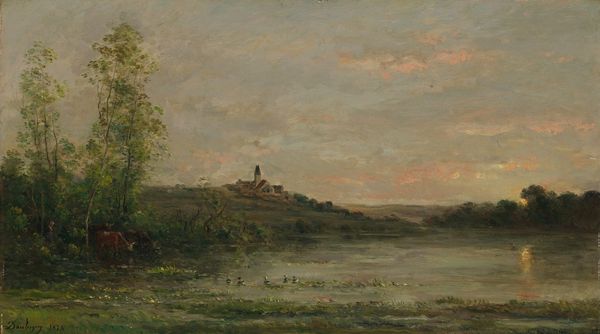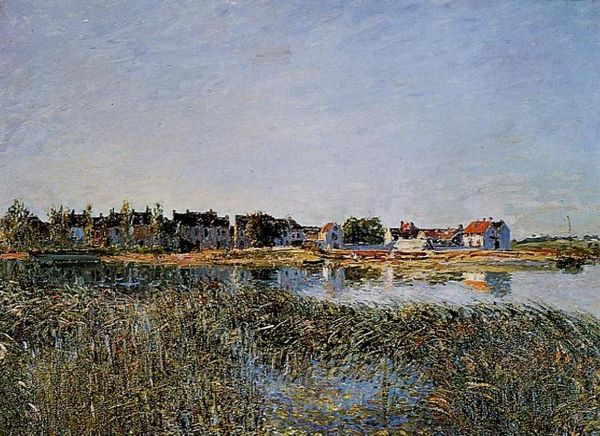
Copyright: Public Domain: Artvee
Curator: Eugene Boudin painted "Les Bords De La Touques Pendant Les Grandes Marées" in 1895, capturing the coast in oil, en plein air. Editor: Wow, it feels… watery. Not just in the obvious sense, but everything seems to dissolve and blend, like memory itself. The boundaries are soft; land, sky, and water almost become one. Curator: It’s fascinating how Boudin emphasizes the horizontal, with the low horizon line. This directs our focus to the interplay of light and atmosphere in the vast sky, yet all created in oil on canvas. Think of the ready availability and shifting material conditions during this late-nineteenth-century painting. Editor: Right, and it works! I’m immediately drawn into that hazy, sun-drenched sky, almost as if the sun's obscured like it’s shy or hiding. It creates a peaceful feeling, slightly melancholic, though. Does it feel melancholy to you? Curator: Melancholy speaks to the socio-economic anxieties of a changing coastal economy; new methods of shipbuilding would be emerging. Consider how those impacted Boudin and how he might have considered the labor that produced works like this. Editor: Oh, interesting. I hadn't thought about that in terms of materials or processes of making here, but how this piece represents loss somehow. The muted colors definitely contribute to the feeling of a world in flux. Curator: Indeed. His commitment to working en plein air - painting outdoors directly from nature – was crucial, defying academic studio practices and elevating the raw experience of the location. He challenges hierarchies, embracing everyday scenes of labor rather than lofty, historical subjects. Editor: And the rapid brushstrokes…they feel so spontaneous, capturing the fleeting moment. You can almost feel the sea breeze. So this wasn't only revolutionary in what it depicts, but also the actual means and conditions through which this painting was created? Curator: Exactly. By breaking with tradition and portraying working conditions he democratized the production, the consumption, and display of art. Editor: Makes you look at this ordinary place with new eyes, doesn't it? Suddenly this watery landscape contains entire social histories. Curator: I'd say Boudin's attentiveness offers rich material to reassess traditional narratives of Impressionism. Editor: Definitely changes my view, knowing all of this now.
Comments
No comments
Be the first to comment and join the conversation on the ultimate creative platform.
